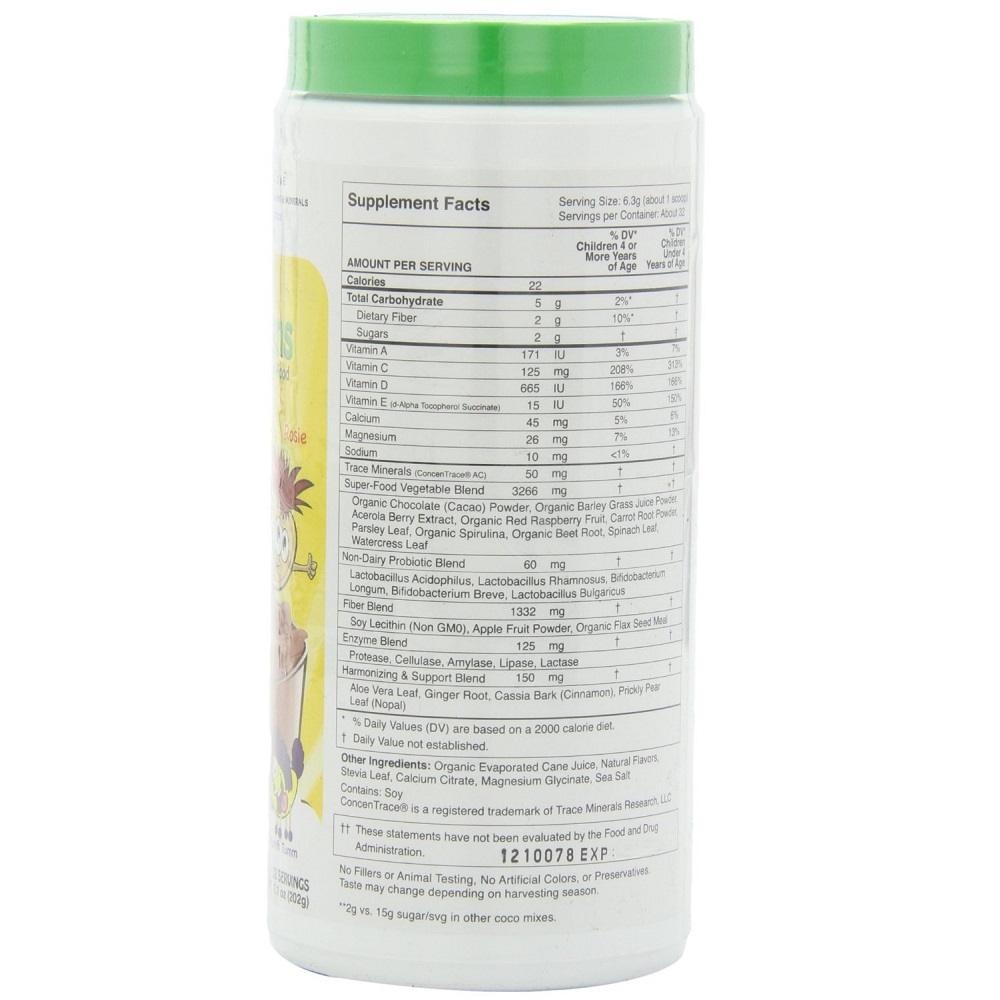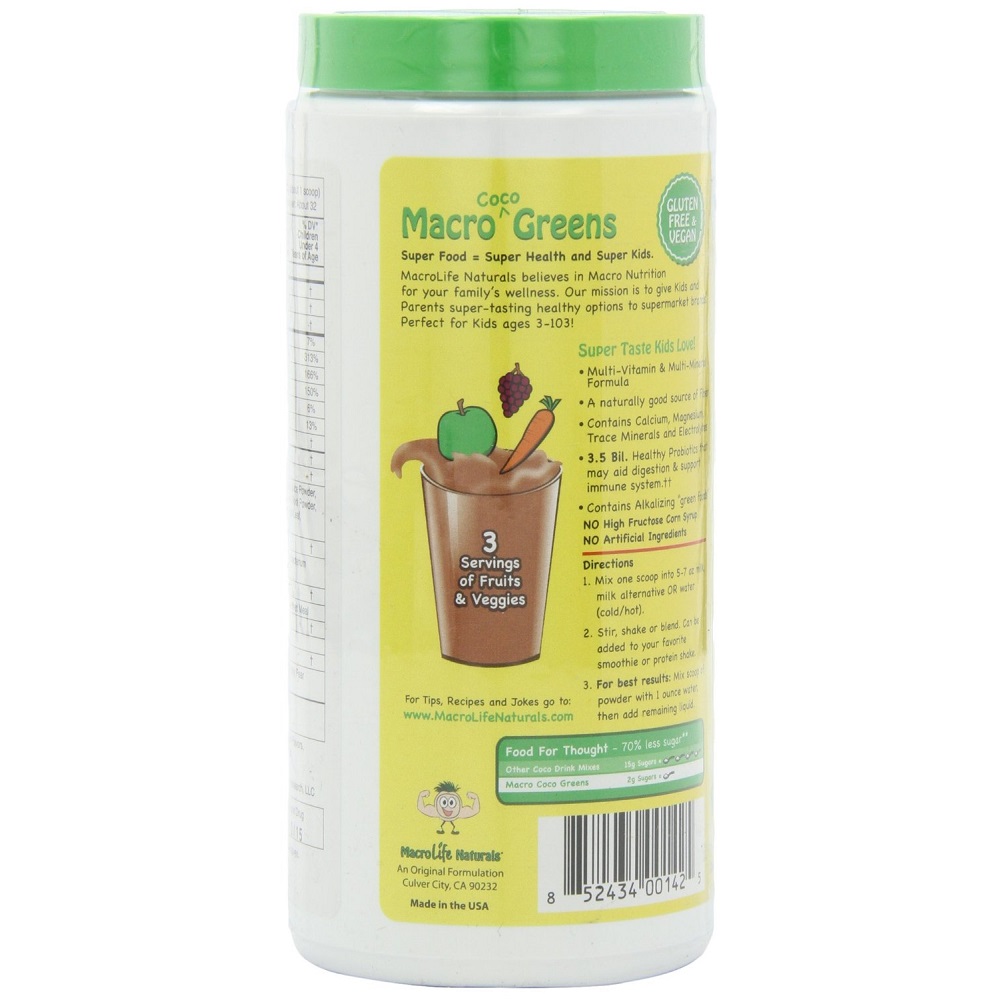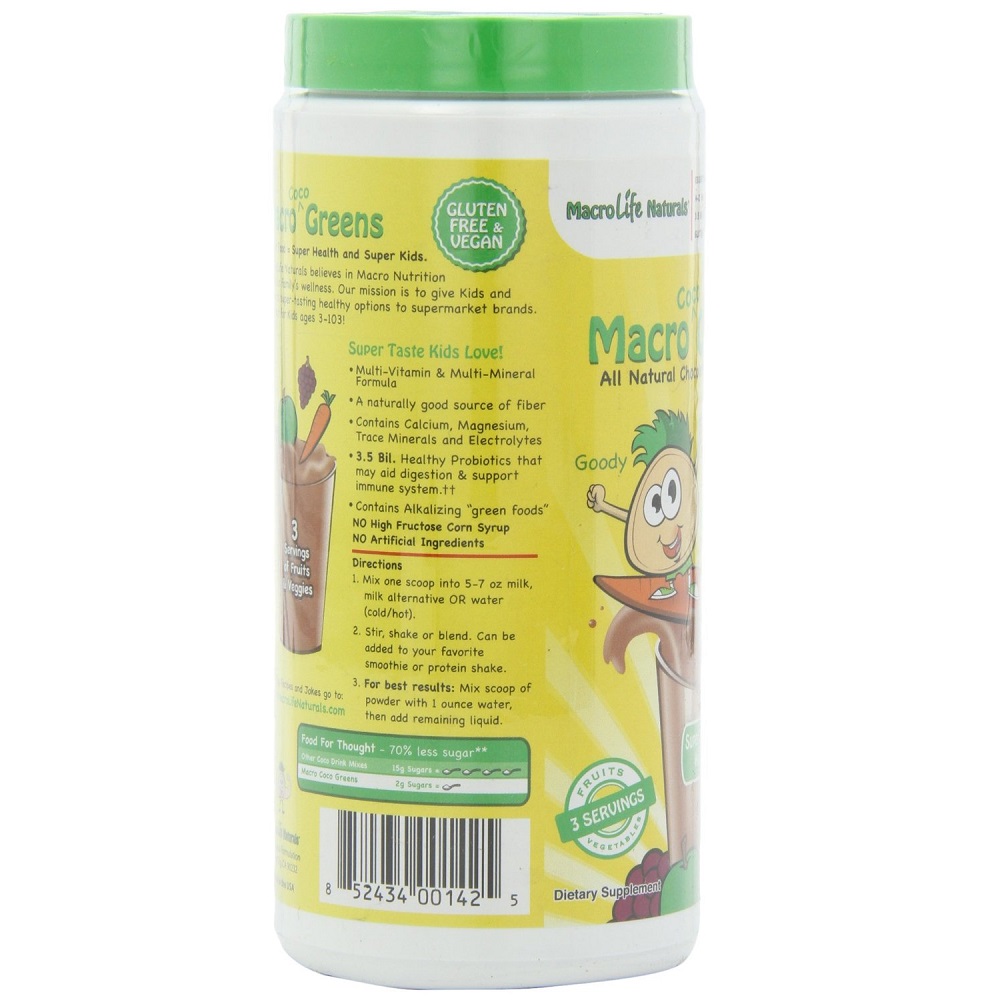| Calories | A calorie is a unit of energy. In nutrition and everyday language, calories refer to energy consumption through eating and drinking and energy usage through physical activity. |
|---|
| Carbohydrates | Carbohydrates are one of the main types of nutrients. They are the most important source of energy for your body. |
|---|
| Sugar | Sugar is an important part of the human diet, making food more palatable and providing food energy. |
|---|
| Dietary Fiber | Helping to maintain a healthy weight and lowering your risk of diabetes and heart disease |
|---|
| Vitamin A | Vitamin A, also called retinol, helps your eyes adjust to light changes when you come in from outside and also helps keep your eyes, skin and mucous membranes moist. |
|---|
| Vitamin C | Vitamin C is an antioxidant found in fruits and vegetables. It is important for your skin, bones, and connective tissue. It promotes healing and helps the body absorb iron. |
|---|
| Vitamin D | Vitamin D is also used for treating weak bones, bone pain, bone loss in people with a condition called hyperparathyroidism, and an inherited disease in which the bones are especially brittle and easily broken. |
|---|
| Vitamin E | Vitamin E is an important vitamin required for the proper function of many organs in the body. It is also an antioxidant. This means it helps to slow down processes that damage cells. |
|---|
| Magnesium | Magnesium is required for the proper growth and maintenance of bones. Magnesium is also required for the proper function of nerves, muscles, and many other parts of the body. |
|---|
| Sodium | Is an element that the body needs to work properly. |
|---|
| Trace Minerals | Used for many biological function, such as digestion |
|---|
| Acerola Berry Extract | It is rich in vitamin C, and also contains vitamin A, thiamine, riboflavin, and niacin. People use it for medicine. |
|---|
| Red Raspberry Fruit | Used for gastrointestinal (GI) tract disorders, including diarrhea; for respiratory system disorders, including flu and swine flu; and for heart problems, fever, diabetes, and vitamin deficiency. It is also used to promote sweating, urination, and bile production. Some people use it for general "purification of skin and blood." |
|---|
| Carrrot Root Powder | You get vitamin A and a host of other powerful health benefits including beautiful skin, cancer prevention, and anti-aging |
|---|
| Parsley Leaf | Might help stimulate the appetite, improve digestion, increase urine production, reduce spasms, and increase menstrual flow. |
|---|
| Beetroot | Data suggest a role as an antioxidant, as a natural source of nitrites, and a potential use in cardiovascular conditions, although evidence is limited. In the food industry, beetroot is used for its color. |
|---|
| Spinach Leaf | Helps prevent osteoporosis (weakness of bones), iron-deficiency anemia. |
|---|
| Watercress Leaf | Watercress can help with respiratory illnesses as it is an expectorant, antibronchitic, antiviral, antipyretic and a general tonic. |
|---|
| Lactobacillus Rhamnosus | Used for high cholesterol, lactose intolerance, Lyme disease, hives, and to boost the immune system. |
|---|
| Lactobacillus Acidophilus | Lactobacillus acidophilus may work by helping the body maintain normal consistency of bacteria in the stomach, intestines, and vagina. |
|---|
| Bifidobacterium Longum | Provides many health benefits as a naturally-occurring bacterium and as a probiotic. |
|---|
| Bifidobacterium Breve | Used for many conditions affecting the intestines, including preventing diarrhea in infants and children; as well as traveler's diarrhea in adults. Some people take bifidobacteria to restore "good bacteria" in the gut that have been killed or removed by diarrhea, radiation, chemotherapy, antibiotics, or other causes. |
|---|
| Lactobacillus Bulgaricus | Used for high cholesterol, lactose intolerance, Lyme disease, hives, and to boost the immune system. |
|---|
| Soy Lecithin | Lecithin, also known as soy lecithin, is a natural emulsifier and stabilizer. It comes from fatty substances found in plant and animal tissues. |
|---|
| Apple Fruit Powder | They are high in fiber and vitamin C, and they are also low in calories, have only a trace of sodium, and no fat or cholesterol. |
|---|
| Flaxseed Meal | Omega-3 essential fatty acids, “good” fats that have been shown to have heart-healthy effects. Each tablespoon of ground flaxseed contains about 1.8 grams of plant omega-3s. Recent studies have suggested that flaxseed may have a protective effect against breast cancer, prostate cancer, and colon cancer. |
|---|
| Protease | Group of enzymes that catalyze the hydrolytic degradation of proteins |
|---|
| Cellulase | Used in many technical processes to make soluble the cellulose that is present in plant-based raw materials. |
|---|
| Amylase | Widely distributed class of enzymes that catalyze the hydrolysis of starch, glycogen, and related polysaccharides to oligosaccharides, maltose, or glucose. |
|---|
| Lipase | Used for indigestion, heartburn, allergy to gluten in wheat products (celiac disease), Crohn's disease, and cystic fibrosis. |
|---|
| Lactase | Can prevent symptoms of lactose intolerance including cramps, diarrhea, and gas. |
|---|
| Stevia Leaf | Is a sweetener that is naturally low in calories and does not raise your blood sugar level when consumed. |
|---|
| Ginger Root | Some people find ginger helps them with the symptoms of upper respiratory tract infection, bronchitis, cough, menstrual cramps, arthritis and muscle pain. |
|---|
| Cinnamon | The health benefits of cinnamon can be attributed to its antibacterial, antifungal, antimicrobial, astringent and anticlotting properties. The spice is rich in essential minerals such as manganese, iron and calcium, while also having a high content of fiber. |
|---|
| Nopal | Used for type 2 diabetes, high cholesterol, obesity, colitis, diarrhea, and benign prostatic hypertrophy (BPH). It is also used to fight viral infections. |
|---|
| Natural Flavors | Natural flavors are created from anything that can be eaten (i.e animals and vegetables), even if those edible things are processed in the lab to create flavorings. |
|---|
| Evaporated Cane Juice | Organic evaporated cane juice is a relatively unrefined sweetener made from the stalks of the sugar cane plant. It is healthier than the refined cane sugar present in so many beverages and baked goods in part because, being organic, it is produced without chemical fertilizers and pesticides. |
|---|
| Calcium Citrate | It is commonly used as a food additive (E333), usually as a preservative, but sometimes for flavor. In this sense, it is similar to sodium citrate. Calcium citrate is also found in some dietary calcium supplements (e.g. Citracal). |
|---|
| Magnesium Glycinate | This medication is a mineral supplement used to prevent and treat low amounts of magnesium in the blood. |
|---|
| Sea Salt | It is used in cooking and cosmetics. |
|---|
| Soy | Organic Soy has the ability to improve the metabolism, help people gain weight in a healthy way, protect heart health, defend against cancer, reduce the effects of menopause, improve digestive health, promotes bone health, protect against birth defects, increase circulation, decrease the risk of diabetes, and generally tones up the body. |
|---|
| Calcium | Calcium is a mineral that is an essential part of bones and teeth. The heart, nerves, and blood-clotting systems also need calcium to work. |
|---|






Reviews
There are no reviews yet.